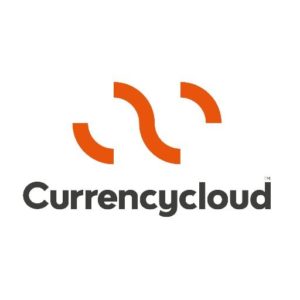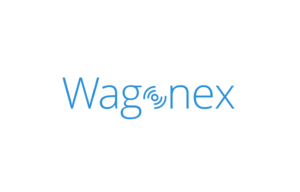The FinTech Five – 9th January 2022
09 January, 2022

Welcome to the FinTech Five, the part of the week where we take a closer look at the best articles, news, and features from over the past week from our FinTech Wales members.
1. Currencycloud discuss the real-time revolution in payments In this week’s Payment Innovation Podcast

First this week, in a recent episode of Payments Innovation, Currencycloud were joined by Matt Wilcox, President, Digital Payments and Data Aggregation at Fiserv. He answered all of Currencycloud’s burning questions about the real-time payments revolution
In the podcast, Currencycloud discussed the following topics:
- Shifting consumer expectations around real-time payments
- The education component necessary for real-time
- The future of real-time payments
Click here to listen to the full podcast and written summary on Currencycloud’s website.
To ensure that you never miss an episode of Payments Innovation, subscribe on Apple Podcasts, Spotify, or here and don’t forget to check out Currencycloud’s YouTube!
2. Chetwood Financial Limited CEO Andy Mielczarek recaps the biggest fintech trends of 2021 and his 2022 predictions with Global Banking & FinanceReview

Next, Chetwood Financial Limited CEO Andy Mielczarek recaps the biggest fintech trends of 2021 and his 2022 predictions with Global Banking & Finance Review.
Key trends covered include:
Digital banking
“2022 will bring greater changes in this space as banks continue to learn more about customers’ new expectations following such an unprecedented time.”
Going cashless
“With transactions being welcomed through Apple Pay, Google Pay, Contactless and Buy Now Pay Later, customers expect choice when it comes to payment methods. This expectation will continue into the new year as financial service companies move to reduce the number of physical credit cards and debit cards being produced, and we learn more about customer behaviour and start to innovate further.”
Buy now, pay later
“Although this method provides customers with a flexible payment solution and frictionless experience, tailored to what they want in the moment, the next year will shine more light on this area and encourage BNPL providers to be more transparent and customer-centric when it comes to the customer’s best interests and what’s the right financial choice for them in the long-term.”
Customer experience funding
“The need to design and implement digital journeys for customers has only grown in importance during lockdown and won’t be going anywhere.”
Funding
“After things slowed down during the last two years, I expect to see a surge in investment by the end of 2022; investment in technology, talent and partnerships with fintechs.”
Banking as a Service (BaaS).
“Banking-as-a-Service (BaaS) solutions are proof that rather than seeing fintechs as a threat, banks should take advantage of what gives them the upper hand; analytics, AI, cloud computing and digital services that can enhance their offering.”
“Those that will really benefit in 2022 will be the ones that collaborate with the best to enhance their services and their customer’s financial experience.”, says Andy.
“2021 featured many new trends in financial services and showed great signs that 2022 will be a year of further innovation within the industry. But one thing I’ve learned over the past year is to expect the unexpected and continue to push for innovation and positive change at all times.”
Read the full article on Global Banking & Finance Review’s website here.
3. Market Update from Chartered Financial Planner and Operations Director, Aled Phillips at Niche IFA

Next this week, approaching the end of 2021, Niche’s Chartered Financial Planner and Operations Director, Aled Phillips, provided a market update after another positive but uncertain year in financial markets; volatility is expected to continue.
“The key drivers for this expected volatility are:
- The themes that have driven markets during 2021 will continue to dominate activity, namely, Covid, inflation, growth, stimulus and valuation.
- With the emergence of the new Omicron Covid variant, we saw Prime Minister, Boris Johnson, warn of a “tidal wave” of infections in the UK. We had already seen a sharp selloff in markets when Omicron first emerged, which quickly reversed, and the market again opened positively during mid-December.
- Inflation: the debate between transitory or structural continues but rhetoric by central banks is beginning to change and the view that rising inflation is transitory is being challenged. Supply constraints, due in part to continued Covid measures have remained in place and the longer they do so the chances increase that higher inflation becomes more entrenched.
- Central banks in the US and UK have already indicated that the stimulus that has supported the economies through this pandemic will start to be unwound. Tapering in the US could be faster than originally expected with the prospects of the first interest rate rises implemented in Q2 2022. These moves in interest rates will make the overstretched valuations in areas such as technology more challenging for investors to overcome.
- With unemployment levels remaining low and labour shortages in a number of sectors due to the “great resignation” (employees not coming back to the workplace after the pandemic), global growth for next year is expected to be positive and with higher interest rates not generally favouring bond markets – equities (stocks and shares) remain a potential asset class of choice.
- All the above is being played out in an uncertain environment. Covid and inflationary pressures will have a psychological impact on consumer spending which could dampen growth expectations – with these uncertainties still playing out, volatility is expected to continue into the start of 2022.”
Click here to read the full market update on Niche’s website.
4. Wagonex release article on EV Adoption: What’s gone right, wrong, and how Subscriptions can help

Next, Wagonex have released an insightful article on EV Adoption: What’s gone right, wrong, and how Subscriptions can help.
“There has been a digital transformation in the automotive industry over the past few years. Back in the day, buying, renting or leasing a car involved a visit to a car showroom or the office of a rental company, but not any more. These days, most people’s car experience starts with a Google search, and for an increasing number of people the whole process from initial enquiry to making a final decision takes place entirely from the comfort of their own homes.
This shift towards digitisation has led dealers to change the way they do business. Most have opted for a 50:50 approach, with cars and enquiry forms available to view and fill out online, followed by invites sent out to interested customers to come into the showroom to take test drives and fill out paperwork. Other dealers, such as cinch, have emerged as entirely online operations, cutting out showrooms altogether.
The article first discusses EV adoption in the UK before questioning what’s putting people off from buying an EV, and finally pondering why you’d spend thousands more on a car when you don’t have to?
Read the full article on Wagones’s website here – or, to discover the benefits of subscribing to an electric car, click here.
5. Yoello releases guide to open banking in 2022

Last but not least this week, “The global adoption rate of open banking is on the rise, but the UK is still leading the way?” asks Yoello in a recent article. “In 2022, the UK is set to expand the use of peer to peer access and control of banking through third party applications.
With COVID making online payments an essential part of running a business, the collaborative model of open banking sharing consumer data via an API makes the payment process quicker and more direct.”
This can come with a whole host of benefits for both the vendor and customer. In a recent article, Yeollo took a closer look at what could happen in open banking in 2022, so you can keep your finger on the pulse.
As well as their predictions for open banking, the article details Yoello’s open banking offering in 2022, as well as the benefits for businesses.
“Yoello is FCA Authorised for open banking, meaning that we can authorise and authenticate payment on behalf of a bank. This saves our clients and their customers both time and money, and means that they can put their best foot forward as industries reopen after the recent coronavirus setback.
By utilising APIs, our clients will be able to access technology outside of their organisation to process payments in a speedier and safer manner. We’re harnessing the open banking legislation (PSD2) to cut out the middlemen.
Yoello Pay will be a central payment platform which utilises open banking to make transactions more affordable and bring merchants and customers closer together.”
Read the full article on Yoello’s website here.
Until Next Week
And that’s it for the FinTech Five this week. Thank you for reading, and don’t forget to join us next week for more of the best content from across our FinTech Wales membership.